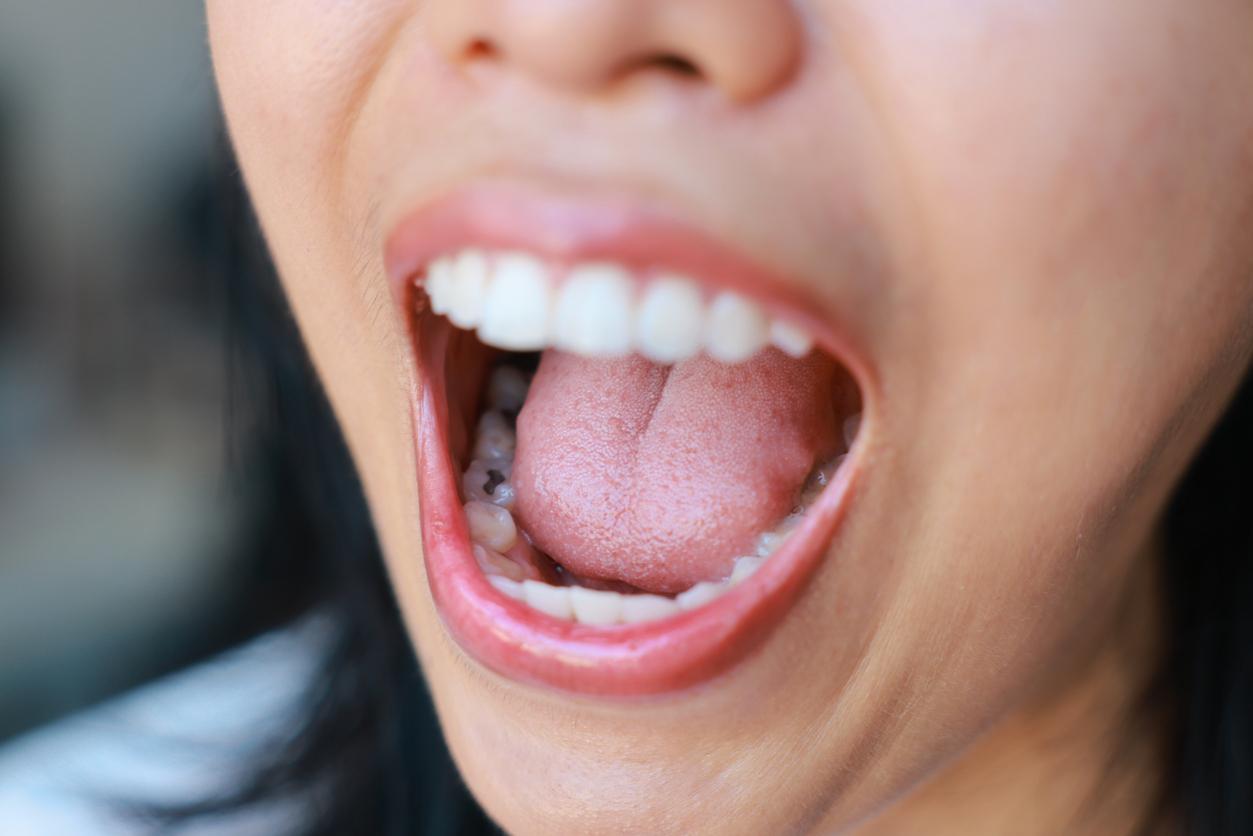Do you tend to sleep with your mouth open? While it may seem trivial, this seemingly harmless nighttime practice can actually have harmful consequences for your health.

- 1. Multiple causes: allergies, colds, medications, structural problems, sleep disorders, sleeping position, smoking.
- 2. Health impacts: dry mouth, oral problems, cardiovascular disorders, fatigue, sleep disorders, exacerbation of allergies.
- 3. Solutions: consult a doctor, treat allergies and colds, humidify the air, change sleeping position, orthodontic solutions, quit smoking.
Sleeping with your mouth open while sleeping can lead to various health problems. As you fall asleep, the muscles in your face gradually relax, allowing your mouth to open freely. This habit, although common, can reveal significant aspects of your health and have significant repercussions.
Mouth breathing: the multiple causes of a bad habit
There mouth breathing during sleep can occur for a variety of reasons. Some of the most common include:
- Allergies and colds: Inflammation of the nasal passages due to allergies or colds can obstruct the air passage, forcing you to breathe through your mouth.
- Drugs : Some medications, such as nasal decongestants, can dry out the nasal membranes and promote mouth breathing.
- Structural problems: A deviated nasal septum, nasal polyps, or enlarged tonsils can obstruct the passage of air through the nose.
- Sleep disorders: Snoring and sleep apnea, characterized by interruptions in breathing during sleep, can also cause you to breathe through your mouth.
- Sleeping position: Sleeping on your back can promote mouth breathing by relaxing the throat muscles and partially obstructing the airway.
- Smoking: Respiratory irritation from tobacco may cause people to breathe through their mouths.
Unsuspected impacts on health
While mouth breathing may seem harmless, it can lead to significant health problems:
- Dry mouth and oral problems: Saliva, which is essential for oral health, is produced less when you breathe through your mouth. This can lead to dry mouth, cavities, gum disease and bad breath.
- Cardiovascular disorders: Mouth breathing can disrupt the balance of oxygen and carbon dioxide in the blood, increasing the risk of cardiovascular disease, high blood pressure and stroke.
- Fatigue and sleep disturbances: Mouth breathing can disrupt sleep quality, causing fatigue, headaches, and daytime sleepiness.
- Exacerbation of allergies: Mouth breathing can worsen allergy symptoms by exposing more of the nasal mucous membranes to allergens.
How to Switch to Healthy Nasal Breathing While Sleeping?
Fortunately, there are solutions to correct mouth breathing and improve your overall health:
- Consult a doctor: A doctor can identify the underlying cause of your mouth breathing and provide appropriate treatment.
- Treat allergies and colds: Effectively managing your allergies and colds can reduce nasal congestion and promote nasal breathing.
- Humidify the air: Dry air can dry out the nasal mucous membranes and promote mouth breathing. Using a humidifier can create an environment more conducive to nasal breathing.
- Change your sleeping position: Avoid sleeping on your back and favor side positions to reduce airway obstruction.
- Consider orthodontic solutions: If structural issues such as a deviated septum are involved, orthodontic solutions may be considered.
- Stop smoking: Smoking irritates the airways and promotes mouth breathing. Quitting smoking can improve your oral and respiratory health.
Sleeping with your mouth open may seem like a small thing, but it can be a sign of underlying health issues and can have a significant impact on your overall well-being. It’s crucial to pay attention to these signs and seek professional help if necessary. By adopting strategies to improve nasal breathing, you can not only improve your quality of sleep, but also protect your oral and cardiovascular health. Stay vigilant and take care of your respiratory health for a healthier, more balanced life.


















